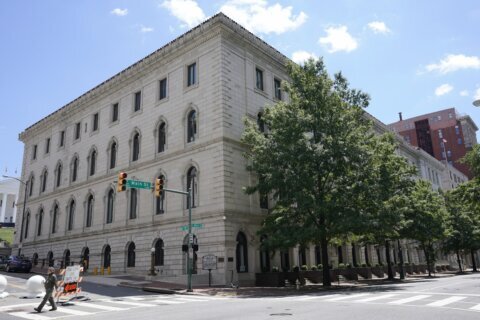BRUSSELS (AP) — The European Union’s top court handed down a ruling Tuesday that could force countries to regularly justify why they are conducting ID checks on people who should be able to move freely within Europe’s passport-free travel area.
The travel zone, known as the “Schengen area,” is made up of 26 countries — 22 EU nations plus Iceland, Liechtenstein, Norway and Switzerland. Normally, people and goods move freely between these countries without border checks. Temporary controls are allowed for security or health reasons.
At least seven countries currently have some restrictions in place, mostly for security reasons or to help prevent the spread of COVID-19. Restrictions should only last for six months but some countries — notably Austria, France and Denmark — routinely renew them and have done so for years.
The European Court of Justice ruled that countries must justify why they are rolling over the border measures, and that they should only do so “in the event of a serious new threat arising.” Under the Schengen rulebook, it said, border controls “cannot exceed a maximum total duration of six months.”
France, for example, has constantly justified its checks due to a “continuous terrorist threat” and pandemic concerns over the past two years.
The case came to the ECJ after a man was checked as he crossed into Austria from Slovenia twice in 2019. He was fined for refusing to show his passport, and complained to a regional Austrian court. That court sought advice from the Luxembourg-based tribunal about whether the checks respect the rules.
The ECJ said “Austria did not demonstrate the existence of a new threat” at the time it renewed its restrictions. It noted that Schengen member countries should be able to take action to deal with any security or health threat within 6 months.
Around 420 million people live in the Schengen zone. Almost 1.7 million people reside in one Schengen nation and work in another, while an estimated 3.5 million people in Europe cross what were once permanent border crossings every day.
Free movement is a pillar of European integration. It helps businesses flourish and many officials worry that the future of the Schengen area is under threat as some countries routinely use the excuse of the coronavirus, migrant movements or ill-defined security concerns to crack down at borders.
The EU’s executive branch, the European Commission, estimates that border restrictions and closures can result in additional costs of 5 billion to 18 billion euros ($5.3 billion to 19.2 billion) a year.
Copyright © 2024 The Associated Press. All rights reserved. This material may not be published, broadcast, written or redistributed.







